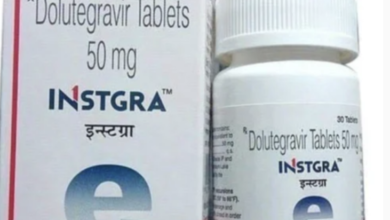
In a bold move reminiscent of public health campaigns against tobacco, a leading nutritional scientist is advocating for tobacco-style warning labels on ultra-processed foods (UPFs). Professor Carlos Monteiro of the University of São Paulo, who coined the term ‘ultra-processed foods,’ highlighted the growing dominance of UPFs in global diets and their associated health risks at the International Congress on Obesity.
Tobacco
“UPFs are increasingly dominating global diets, raising the risk of multiple chronic diseases,” Monteiro told The Guardian. “Public health campaigns, akin to those against tobacco, are essential to curb the dangers of UPFs. These campaigns should include warnings about the health risks of UPFs. Advertisements for UPFs should be banned or heavily restricted, and front-of-pack warnings should be introduced, similar to those on cigarette packs.”
This recommendation comes amid rising concerns about the health impacts of highly engineered food products. As obesity rates climb and diet-related diseases become more prevalent, the push for more transparent labeling aims to provide consumers with immediate, visual information about the potential risks of these foods.
Ultra-Processed Foods vs. Minimally Processed Foods
Dr. Shruthi Badarinath Pranav, a consultant in pediatrics and pediatric gastroenterology at Sparsh Hospital Bengaluru, explains that the distinction between ultra-processed and minimally processed foods lies in the degree and nature of processing. Ultra-processed foods are industrial products made from a mix of substances far removed from their original state.
These foods often include ingredients not typically found in home kitchens:
- Cosmetic additives: Emulsifiers, sweeteners, artificial colors and flavors, and preservatives to enhance appearance, taste, and shelf life.
- Refined ingredients: Sugars, fats, and starches stripped of their natural nutrients and fiber, providing empty calories with little nutritional value.
- Novel ingredients: Substances like hydrolyzed proteins, maltodextrin, and high-fructose corn syrup, created through industrial processes, raise concerns about their long-term health effects.
“Combining these components often involves techniques such as extrusion, molding, and hydrogenation, further distancing UPFs from whole, minimally processed foods like fruits, vegetables, and whole grains,” Dr. Shruthi notes.
Health Concerns Associated with Ultra-Processed Foods
A growing body of evidence highlights several health concerns related to the regular consumption of UPFs:
- Obesity: UPFs are energy-dense, hyper-palatable, and engineered to encourage overeating, leading to excessive calorie intake and weight gain.
- Type 2 diabetes: The high sugar and refined carbohydrate content disrupts blood sugar regulation, increasing the risk of insulin resistance and diabetes.
- Cardiovascular disease: UPFs often contain unhealthy fats, sodium, and added sugars, which can raise blood pressure and cholesterol levels, harming heart health.
- Cancer: Emerging research suggests a link between UPFs and certain cancers, with some additives and processing byproducts under scrutiny.
- All-cause mortality: Studies have found a correlation between higher UPF intake and increased risk of death from all causes, indicating their broad negative impact on health.
Could Warning Labels on Ultra-Processed Foods Be Effective?
Dr. Shruthi believes that while research specific to UPFs is ongoing, insights from tobacco control and other public health initiatives offer compelling evidence for the effectiveness of warning labels:
- Raising awareness: Graphic warnings vividly communicate health risks, encouraging consumers to rethink their choices.
- Behavior modification: Studies on warning labels for sugary drinks show they can influence purchasing decisions and promote healthier alternatives.
- Public sentiment: Surveys reveal significant public support for UPF warning labels, showing a desire for greater transparency and informed decision-making.
- Industry response: Faced with the prospect of negative labeling, food companies might be incentivized to reformulate products, leading to healthier options for consumers.
As concerns about the health impacts of ultra-processed foods grow, the call for tobacco-style warning labels aims to empower consumers and prompt changes in the food industry for the betterment of public health.
No related posts.




